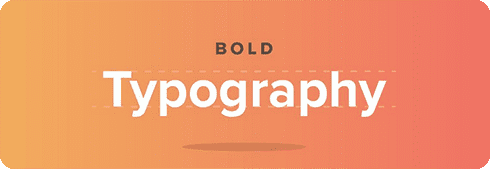This year again, Badsender was at Litmus Live in London, and your devoted servant has written an article to share his opinion on this edition.
Litmus Live is a bit like Email Marketing Day but on an international level. Specialists, technicians, marketers and other professions that revolve around email go there to find the latest trends. Historically, Litmus Live started in 2014 and was then called The Email Design Conference. It was mostly aimed at developers and covered very technically advanced topics. While last year there was still a pretty big mix between technical and marketing, this year the technical talks were less in-depth than before. Unfortunately, as the technical and marketing conferences were held at the same time, I was not able to attend the latter; I will therefore share with you my point of view on the sessions I was able to attend and that I found particularly interesting.
Using emotional intelligence to achieve zen email marketing
 A conference of Kait Creamer on Emotional Intelligence, which addressed topics often heard before, but with a new, creative and positive approach. It would be difficult to make a quick summary, but we can retain some key points:
A conference of Kait Creamer on Emotional Intelligence, which addressed topics often heard before, but with a new, creative and positive approach. It would be difficult to make a quick summary, but we can retain some key points:
- According to his own experience, relying on emotional intelligence will take you further than staying on pure intellect alone. Your instincts and feelings are also important indicators.
- Data is your friend, all data. Don't just rely on easy data (open and click rates). Read times and, more importantly, the conversion rates are particularly important markers that are too often overlooked.
Visual design techniques to set your inbox on fire
A conference of Lili Worth who talked about design techniques to make an email stand out from the crowd. The presentation started with the current trends. These included
- the approach based on the typography and the strong contrasts
- the use of gradations
- get out of the reading gridApproach particularly adapted to long emails to keep the reader's interest, but technically difficult to set up
- minimalism: Less is more
- the total absence of imagesWith the improvement of the support of exotic typographies, we sometimes see emails appearing that play only on typography. Of course, if your readers are on Outlook, it's not even worth thinking about
- Customized illustrationsWe are talking about "homemade" illustrations, which give character to your message and your company. According to statistics, this approach seems to work particularly well, especially compared to the "generic" images that can be found in image banks.
Need help?
Reading content isn't everything. The best way is to talk to us.

Then, the speaker discussed possible future trends: from custom designs per user, the return of vintage designs and the simplification messages.
But as always, the question is not to blindly embark on current or future trends, but to see what works for your audience.
Conversions are a goal. Openers win the cup
A conference of Parry Malm particularly interesting to me in the sense that it goes beyond the usual recommendations: Generally, when we do AB testing on two or more versions, the final idea is to maximize the conversion rates. So we would tend to take this data as a marker that will define the winning version. If in theory this is a relevant approach, in reality it is unfortunately not so simple.
The statistical noise is such that in your funnel (conversion funnel for the French purists), the more you try to optimize something that is far down the road, the lower your impact will be. And the presentation showed that mathematically, with a standard statistical noise and if we take 10% of transformation rate between each step (opening -> click -> conversion), the optimization based on the number of openings will have a greater impact than the optimization on the conversion which has almost no impact.
And, as every year, there was the "Live optimization": the bravest participants could send an email beforehand to have it examined by the experts present. This is always an interesting exercise to get the point of view of the many experts present.
In short, even though I found the previous year to be more interesting, it was still a great year for Litmus Live.
Leave a Reply